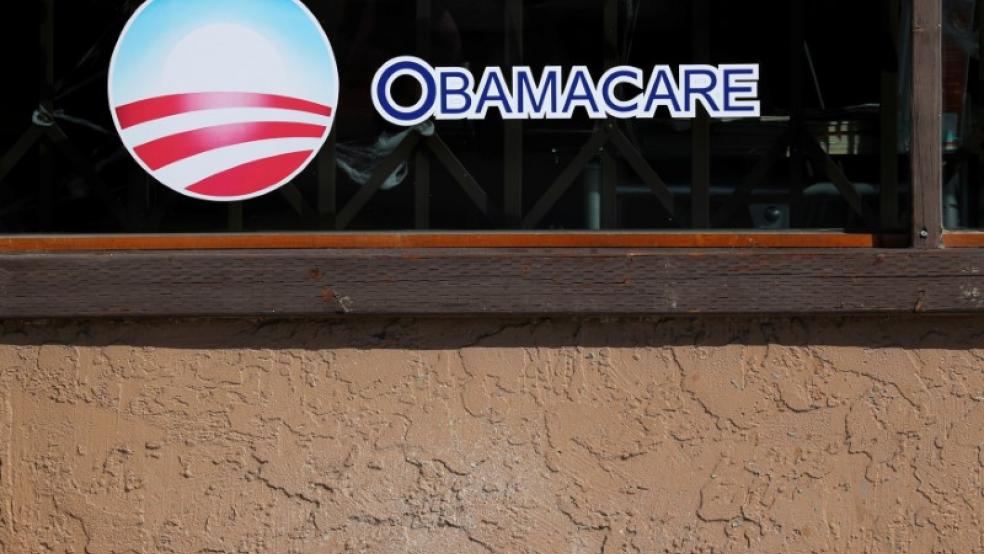The House is expected to deliver a blow to Obamacare Wednesday evening by voting to repeal the so-called Cadillac tax, the law’s yet-to-be-enacted levy on high-cost health insurance plans.
The provision, a 40% excise tax on the value of certain insurance plans, is a key cost-containment measure in Obamacare, and one of the main ways the law was supposed to pay for itself.
After being delayed twice, the tax is set to take effect in 2022, hitting insurance plans valued above $11,200 for individuals and $30,150 for families.
But the tax has faced stiff opposition from the start, with both labor groups and employers lined up against it. The measure being voted on Wednesday evening is co-sponsored by more than 80% of House members.
The House vote may mean the tax never gets enacted, dealing a disappointing loss to both deficit hawks and economists who contend that it would help curb the rise in health-care costs. Supporters also said it would reverse some of the favorable tax treatment of employer-provided health insurance, which does not get taxed like regular income does, thereby helping raise worker pay.
“[W]ith neither party showing much concern for the government’s rising tide of red ink, the House will move to permanently block the tax from taking effect — and balloon deficits by $168 billion over the next decade,” The New York Times’s Abby Goodnough says.
Budget watchers urge lawmakers to reconsider: “The Cadillac tax is one of the most important tools we have to control health care cost growth in the private sector,” Maya MacGuineas, president of the Committee for a Responsible Federal Budget, said in a statement. “Repealing it will drive up health care costs while adding more than $1.2 trillion to the debt over the next two decades.”
Why Democrats are against the tax: “At first glance, it seems odd for House Democrats to pass a roughly $200 billion tax cut that removes an ACA plank. It is a tax cut without the revenue-raising offsets Democrats say they favor, and it is a strike against Obamacare while Democrats defend the law,” The Wall Street Journal’s Richard Rubin and Stephanie Armour write.
But lawmakers argue that workers stand to get hit by the tax, including union members who, because of the tax treatment afforded such plans, have negotiated for more generous benefits packages instead of pushing for higher wages. Rep. Joe Courtney (D-CT), the bill’s sponsor, argues that the tax has just driven companies to raise deductibles and says that repealing it won’t undermine Obamacare.
A Kaiser Family Foundation analysis published last week found that, unless employers change their benefit plans, the tax would affect 21% of employers that offer health coverage in 2022, or 31% when worker contributions to Flexible Spending Accounts are considered. By 2030, 37% of employers would be affected, or 46% including FSA contributions. “It is likely many such employers would modify their plans to avoid the tax — for example, offering lower-cost plans, raising deductibles or otherwise shifting costs to workers to avoid the threshold,” Kaiser’s Chris Lee wrote.
Liberal economists also contend that the tax doesn’t address the real driver of growing health-care costs. “To put it simply, the tax aims to reduce patients’ utilization of health care. But the glaring problem of U.S. health costs is not excess utilization; instead it is high and rising prices for health care,” Thea M. Lee, president of the Economic Policy Institute and a former leader of the A.F.L.-C.I.O., and economist Josh Bivens wrote, according to The New York Times. “Smart cost containment policy should address these prices, not seek to ratchet down how much care patients seek.”
What’s next: Sen. Chuck Grassley (R-IA), the chairman of the tax-writing Senate Finance Committee, is reportedly open to considering a repeal bill, and the Senate version of the legislation has 42 co-sponsors — 21 from each party, including Democratic presidential candidates Kamala Harris and Elizabeth Warren, the Journal says. And if Congress does repeal the Cadillac tax, a couple of other unpopular Obamacare taxes — on medical device makers and health insurers — might be next, the Journal’s Rubin and Armour write.





